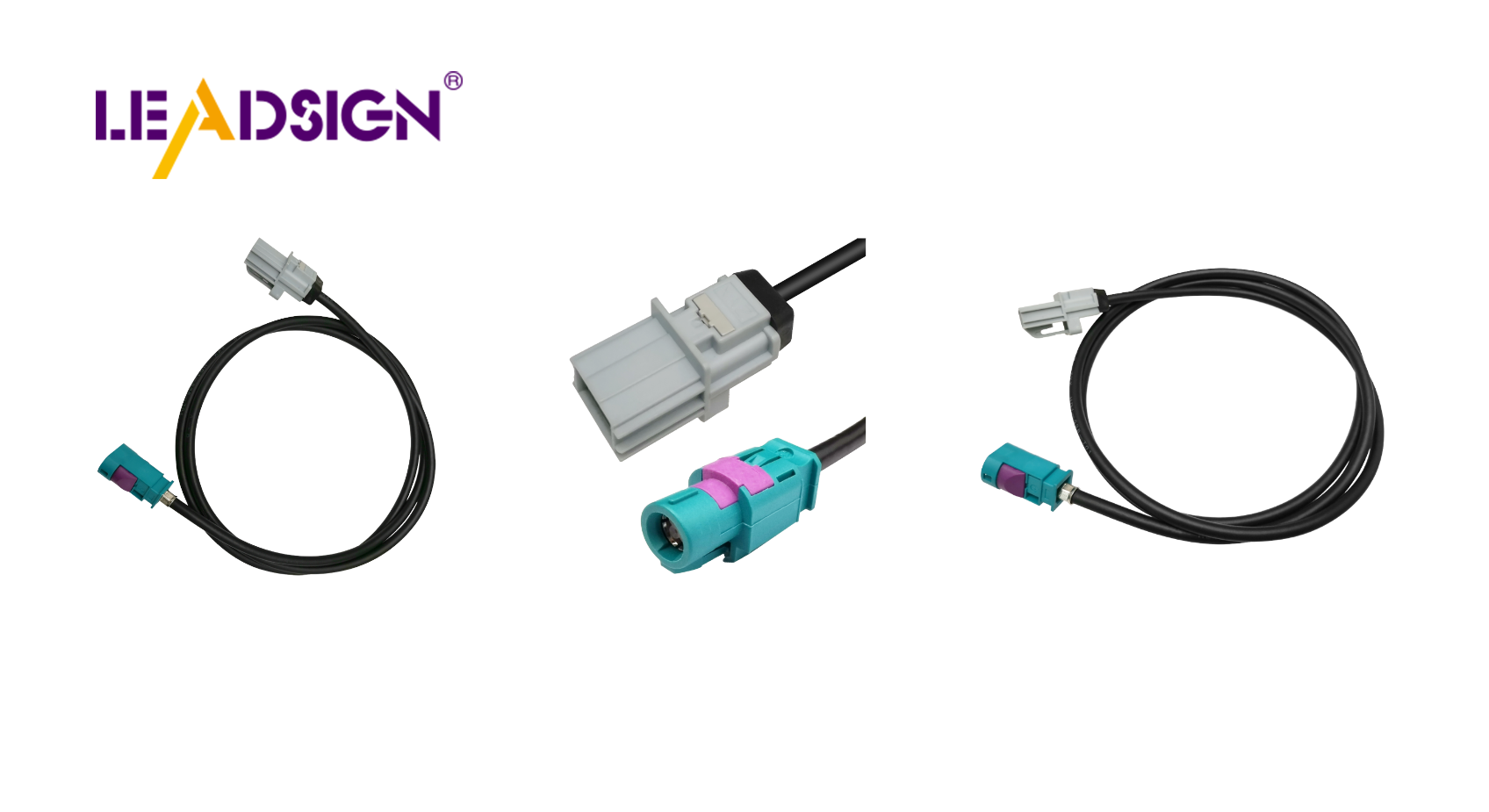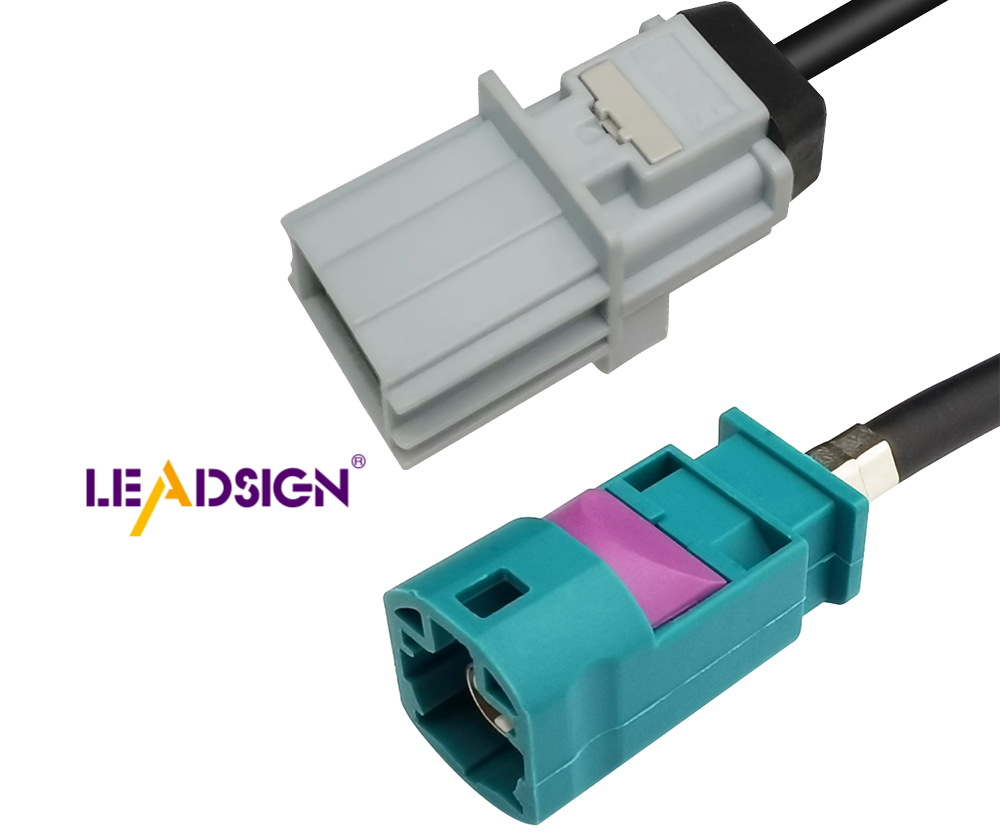Selecting Vehicle Connectors for Efficient Auto Network Cars

Vehicle connectors are very important in today's cars. They help different parts of the vehicle communicate with each other, ensuring optimal performance. Quality connectors prevent electrical issues that can be hazardous, making sure that lights, brakes, and steering function correctly. Choosing the right vehicle connectors is essential for maintaining safety and efficiency. Consider their ability to withstand weather conditions and their durability for the best results.
Key Takeaways
Vehicle connectors are essential for ensuring safe and efficient communication between different parts of your car's electrical system.
When selecting connectors, consider their power handling capacity to prevent overheating and potential hazards.
Choose connectors made from durable materials and designed to withstand harsh weather conditions for long-lasting performance.
Ensure connectors match your car's electrical system specifications to maintain signal integrity and prevent failures.
Familiarize yourself with different types of connectors, such as blade, pin, and ring connectors, to select the best fit for your needs.
Testing connectors before installation can help identify any weaknesses and ensure reliable performance.
Consulting with automotive experts can provide valuable insights and recommendations tailored to your vehicle's requirements.
Understanding Vehicle Connectors
What They Are and Why They're Important
Vehicle connectors are key parts of your car's electrical system. They connect circuits so power and signals can move easily between car parts. These connectors look like plugs, sockets, or cases, each made for a special job. You find them in important places like the engine, dashboard, and lights. Their main job is to keep connections safe and steady, stopping problems that might hurt how your car works.
Why They Matter in Modern Cars
In today's cars with many networks, vehicle connectors are very important. They let systems like GPS, music players, and safety tools talk to each other well. By making sure signals and power move right, these connectors help your car work its best. They're built to handle tough conditions like shaking, heat, wetness, and chemicals. This strength keeps your car's systems working well over time. Picking the right connectors is crucial for keeping your car's network safe and efficient.
Important Things to Think About When Picking Car Connectors
When picking car connectors, think about a few key things. These will help you choose the best ones for your car's electric system, including reliable car wire connector types.
How Much Power They Can Handle
It's important to know how much power a connector can take. This tells you the most power it can safely carry. Make sure the connector's power level matches what your car needs. If it's too low, it might get too hot and break. Always check each part of the connector to make sure it can handle the power safely.
Size and What They're Made Of
Size and material matter when picking connectors. The size should fit in your car's space well. Small designs save space, especially where there's not much room. The material affects how long they last and work well. Good materials like gold or silver keep signals strong. Pick materials that are strong and last long in tough car conditions.
Protection from Weather
Weather protection is very important too. Car connectors need to handle tough weather like shaking, heat changes, wetness, and chemicals. Choose connectors that resist these things for lasting use. Strong connectors are needed for big vehicles that shake a lot. By picking weather-resistant ones, your car's electric system stays safe over time.
Matching with Car's Electrical System
When picking car connectors, make sure they fit your car's electrical system. This makes sure they can handle power and keep signals strong. Here are some important things to identify auto wire connector types:
Current Rating: Match the connector's current rating with what your car needs. This helps it carry power safely without getting too hot or breaking. If it's wrong, it could cause dangers like fires.
Mechanical Factors: Think about where the connectors will be used. In cars, they often shake and move, especially in big vehicles. Pick connectors that can handle this to stop them from coming loose or breaking.
Signal Integrity: Keeping signals clear is very important for your car’s systems to work well. Look for connectors with low contact resistance and good materials like gold or silver-plated alloys to keep signals strong.
Size and Material: The connector should fit in the space you have in your car. Smaller ones save room and help things work better. Also, the material affects how long they last and work well in tough conditions.
By thinking about these things, you can choose car connectors that fit well and make your car work better and stay safe.
Types of Vehicle Connectors

Knowing about vehicle connectors helps you pick the right ones. Each type does a special job and has its own benefits.
Blade Connectors
Blade connectors are very common in cars. You find them in places like the fuse box and lights. They have a flat metal piece that fits into a slot. This design keeps connections safe and steady, which is important for your car's circuits. Blade connectors are easy to use and work well, so many people choose them for cars.
Pin Connectors
Pin connectors are also called pin-and-socket connectors. They have a pin that goes into a socket, making a strong link. These are used where many wires meet, like engine controls or sensors. Pin connectors let electricity flow well and handle shaking and tough conditions in cars. Their strong build keeps your car's systems working right.
Ring Connectors
Ring connectors are simple and work great in cars. They have a ring-shaped metal part that fits over bolts or studs for secure links. You use them for grounding or battery connections. Ring connectors are easy to put on and take off, making them handy for car tasks. They're strong and can carry lots of power, keeping your car's systems running smoothly.
By learning about these connector types, you can pick the best ones for your car’s needs. Each type has its own perks, helping your car's electrical parts work safely and well.
Special Connectors
Special connectors are important in cars. They are made for certain jobs, helping your car's electric parts work well.
1. Fast Data Connectors
Fast data connectors are needed for new cars with screens, maps, and cameras. They move data quickly so everything works fast. These connectors keep signals clear for good sound and pictures.
2. Waterproof Connectors
Waterproof connectors are key for cars in bad weather. They stop water from getting into the electric parts, which helps avoid rust and problems. Picking waterproof ones keeps your car working even when it's wet.
3. Heat-Proof Connectors
In hot places like near the engine, heat-proof connectors are a must-have. They handle high heat to keep connections safe and working right. This strength stops breakdowns and keeps your car's electric parts running well.
4. Shake-Proof Connectors
Cars feel shakes, especially on bumpy roads. Shake-proof connectors can deal with this, stopping loose connections and keeping electric paths steady. Using these makes your car more reliable on tough roads.
By knowing about special connectors, you can make your car safer and better at its job. Each connector type is made for a special need in today's cars.
Practical Tips for Choosing Connectors
Picking the right vehicle connectors makes your car safer and better. Here are some easy tips to help you choose wisely.
Testing Connectors
Test connectors before using them in your car. Make sure they are strong and work well in different situations. For example, Blade Connectors are simple to use, especially if you need to unplug them often. Try connecting and disconnecting them many times to see if they stay strong. Pin Connectors should also be checked to ensure they keep wires connected safely. Doing these tests helps stop electrical problems in your car.
Asking Experts
Talking to experts can help you pick the best connectors for your car. Car professionals know a lot about different connector types and how they work. They can suggest the right ones for what your car needs, like fast data transfer or weather protection. Getting expert advice helps you make smart choices so your car's electric system works well.
Thinking About the Future
Think about what your car might need later when picking connectors. As technology changes, your car might need new features that require special connectors. If you're upgrading things like music systems, you'll want connectors that handle fast data well. Also, consider the weather where you drive; pick connectors that resist rain or heat for long-lasting use. By planning ahead, you choose connectors that will fit future needs too.
Following these tips helps you pick vehicle connectors that improve safety and performance. Testing them, asking experts, and thinking ahead will keep your car running great.
Knowing about vehicle connectors and how to pick them is key for your car's electrical system. Picking the right ones makes your car work better and keeps it safe by ensuring strong connections. Use tips like testing connectors, asking experts, and thinking about future needs to make smart choices that help your car over time. Good connectors handle tough conditions like shaking, wetness, and heat, making sure they last long.
See Also
Streamlining Automotive Data Flow With Innovative Connectors
Boosting Data Transfer: Significance of Fast Automotive Connectors
Improving Performance Using HFM Connectors in Vehicles
Transforming Vehicle Connectivity Through HFM Connector Benefits

